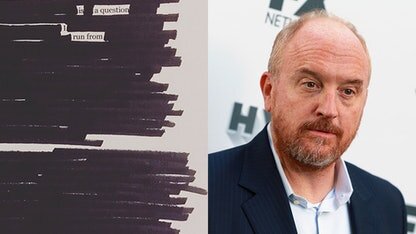Blacking Out Political Turmoil
In a blog post about President Barak Obama, popular blackout poet Austin Kleon discussed a political poem he had made, saying “Politics is ephemeral, which is why I would never put this in the book.” However, I would argue that politics are not ephemeral. Policies may come and go, but their effects are long lasting. Though President Obama was only president of the United States for eight years, U.S. citizens such as myself still feel the long lasting ripples of his presidency from policies to cultural shifts. Rather than avoiding politics in their blackout poetry, blackout poets instead should write politics.
While Kleon and others may believe that political blackout poetry is not as worthwhile or worthy of publishing, many people have only started creating blackout poetry because of politics. Poetics scholar Kenneth Goldsmith suggested that when people are “angry and pissed off at documents” they turn to erasure and blackout poetry to deal with those feelings; therefore, when people are upset with political documents, they begin making poems out of them. In fact, much of the popularity blackout poetry has gained has been a result of this political commentary. Though the political moment that inspired that initial frustration may pass, the documents will still exist and that frustration will still be felt.
Many people have begun making political blackout poems for years. In fact, there are four different contemporary political movements within the blackout poetry community, including one inspired by Kleon’s newspaper blackout poems. Click through below to learn more about each.
Contemporary Blackout Poetry Political Movements
Blacking Out US Warfare
Travis Macdonald and Jen Bervin tackled the turbulent political turmoil surrounding the United State’s warfare engagements in the Middle East in their blackout poetry projects Mission O Repo and Nets, respectively.
Blacking out in the Age of Trump
The political turmoil of the United States during and following the 2016 presidential election sent many towards the blackout poetry genre. Hundreds began posting their own blackout and erasure poems on twitter and publishing them in popular literary magazines as a way to deal with the political climate.
Blacking Out the News
In the mid 2000s, Texas poet Austin Kleon began creating blackout poems made from newspapers. While he did not intend for his poems to be political (in fact, he says actually purposefully avoided publishing political poems), his use of his newspapers as source material set the stage for a political shift.
Blacking Out in the #MeToo Movement
As a way of dealing with the frustration over the outpouring of stories of sexual assault in the late 2010s, poet Isobel O’Hare began making blackout poems from the apologies of these assaulters. When O’Hare posted them online, they went viral.



